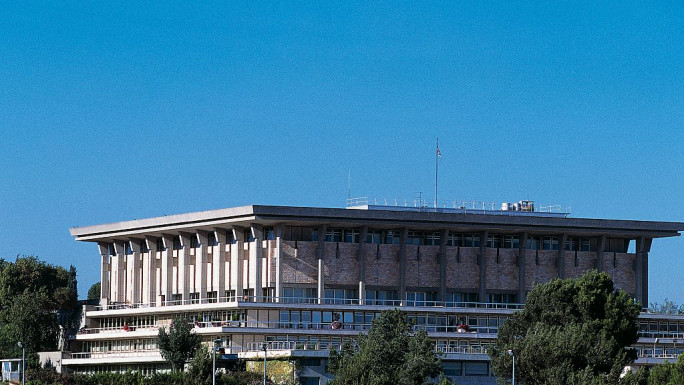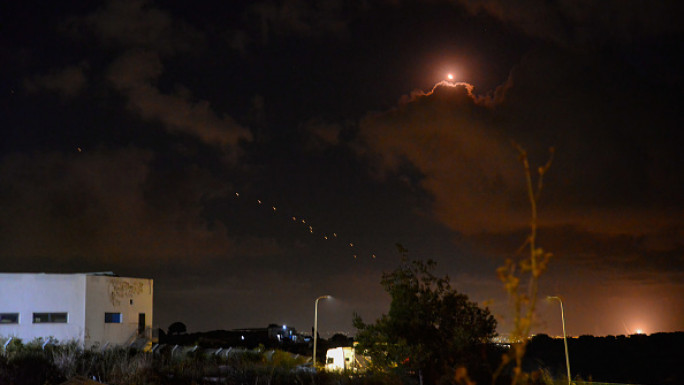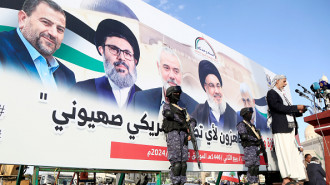Gaza war: Harvard student letter criticising Israel faces backlash
Following Saturday's surprise attack by Hamas on Israel, a coalition of student groups from Harvard issued a public letter laying the blame solely on Israel. Other student groups and individuals issued similar statements.
"We, the undersigned student organisations, hold the Israeli regime entirely responsible for all unfolding violence," the letter begins. It describes the decades-long struggle of Palestinians living under Israeli occupation and the likely imminent retaliation Palestinians will face following Hamas' attack on Israel.
Unsurprisingly, the letter and other statements quickly saw widespread public condemnation, with multiple politicians publicly weighing in. Far more concerning for civil rights advocates has been the threats and retaliation against these young people, leading to the rescinding of job offers and threats to their safety.
"If there's ever a place for intellectual honesty and sharing of thoughts and ideas, it's a college campus," Tahirah Amatul-Wadud, an attorney and executive director of the Massachusetts chapter for the Council on American-Islamic Relations, told The New Arab.
"We should be encouraging students in feeling comfortable and safe to articulate their values, even if it's uncomfortable for other people," she said.
The crux of the letter, which was quick to draw widespread and high-level ire, was blaming Israel for the attack by Hamas, a position that would seem contradictory to the situation or, at the very least, too soon. That is until one considers that Haaretz, Israel's newspaper of record, published an editorial along similar lines, blaming Netanyahu following the attack from Gaza.
"The disaster that befell Israel on the holiday of Simchat Torah is the clear responsibility of one person: Benjamin Netanyahu," the Israeli news editorial bluntly begins.
It's unclear why an Israeli newspaper would have more leeway to take a contradictory stance than students at one of the world's most prestigious universities. However, criticism of Israel on US university campuses has become increasingly criticised in recent years as organised scrutiny of the country's human rights practices has grown.
"We know there are double standards over who gets to speak freely, depending on who's in power," said Amatul-Wadud. She added that she didn't think the students should face retaliation, given that, though strongly worded, their letter didn't constitute hate speech.
So far, several companies have said they would not consider hiring students who signed the letter. Some CEOs have preemptively asked Harvard to release the names of the student signatories to blacklist them. Following multiple online threats, the students and their organisations removed their names.
In addition to retaliation faced by the Harvard students, other young people who have voiced support for Palestinians following the recent attacks have faced employment repercussions.
A student from New York University and president of the Student Bar Association had a job offer rescinded following an email statement to the university blaming Israel for the violence and expressing solidarity with the Palestinians.
"I want to express, first and foremost, my unwavering and absolute solidarity with Palestinians in their resistance against oppression towards liberation and self-determination. Israel bears full responsibility for this tremendous loss of life. This regime of state-sanctioned violence created the conditions that made resistance necessary," Ryna Workman wrote in the email, circulated widely in the media since it was sent on Tuesday.
In another instance, a sports reporter in Philadelphia with the PhillyVoice immediately lost his job after he criticised a statement by the local basketball team supporting Israel.
The 76ers wrote on X, "We stand with the people of Israel and join them in mourning the hundreds of innocent lives lost to terrorism at the hands of Hamas," along with the hashtag #StandWithIsrael.
The reporter, Jackson Frank responded by quoting the tweet and posting, "This post sucks! Solidarity with Palestine always."
This isn't the first time university students and others who have supported Palestinians have faced backlash. The past several years have seen growing calls from student groups for universities to divest from investing in companies connected to human rights abuses by the Israeli government, often resulting in accusations of antisemitism.





 Follow the Middle East's top stories in English at The New Arab on Google News
Follow the Middle East's top stories in English at The New Arab on Google News


